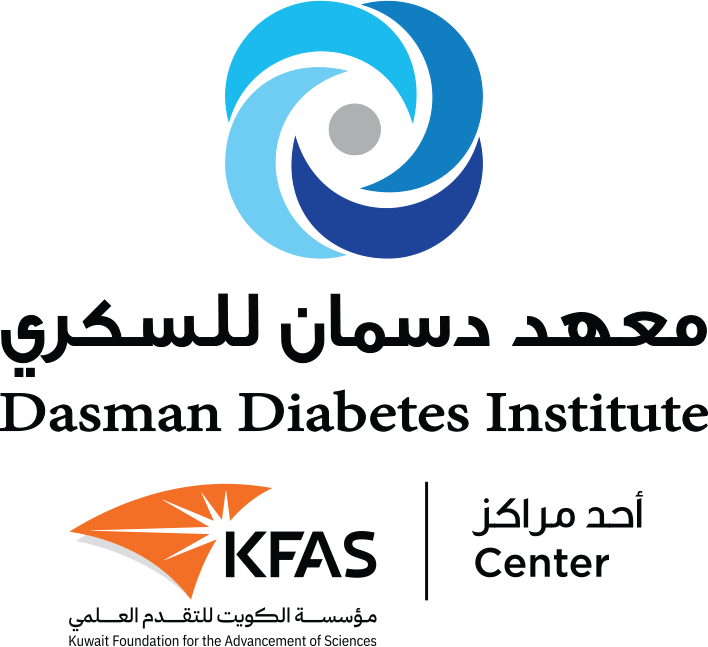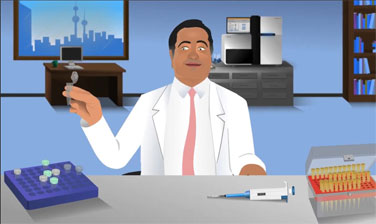Obesity, type 2 diabetes and associated complications are rapidly growing and representing a serious threat to Kuwaiti population as well as worldwide. The role of inflammation in Type 2 diabetes (T2D) and its co-morbidities is now clear, although the immune/metabolic markers and their pathways that promote and sustain the inflammatory process remain unclear.
There is an urgent need to identify novel immune and metabolic markers in order to understand the mechanisms underlying high fat diet/overnutrition-induced inflammation and T2D and related complications.
MODY is a very rare type of diabetes that is caused by a mutation in the genes. Our primary focus is to identify and characterize the genes and gene variants, or mutations, that increasing the risk of obesity, diabetes, and related complications in Kuwaiti populations.

More about our research achievements!
Our Research
We use several genome-wide methodologies, including genome-wide association studies (GWAS), whole genome/exome sequencing, whole transcriptome profiling and high-resolution genotyping. We focus on identifying the clinical significance of the identified gene/variants to identify the best medical approach to treat diabetes. Our research includes investigating epigenomic alterations, gene-gene interactions, microRNA profiling and development of panels consisting of population-specific markers for predicting the risk outcomes of complex disorders.
Our Objectives
- Delineate genetic factors predisposing to diabetes by family-based association studies, focusing on single/multi-generational Kuwaiti families with maturity onset diabetes of the young (MODY), latent autoimmune diabetes in adults (LADA), gestational and neonatal diabetes, other congenital diabetes (autosomal dominant, recessive), and rare metabolic diseases.
- Perform genetic characterization of mitochondrial variants linked to diabetes and related metabolic disorders.
- Establish a next generation sequencing (NGS) and bioinformatics pipeline for RNA sequencing, genome-wide miRNA sequencing and high-resolution human leukocyte antigen (HLA) typing.
- Establish functional assays to elucidate the regulatory role of population-specific variants/genes implicated in diabetes and obesity.
- Develop a Kuwait Variome database cataloging population and/or disease-specific variants.
- Evaluate the role of identified risk loci in the prevention and treatment of diabetes through close collaboration with the medical sector.
- Validate electro- chemo-luminescent (ECL) assays for the precise detection of diabetes-related auto-antibodies.








